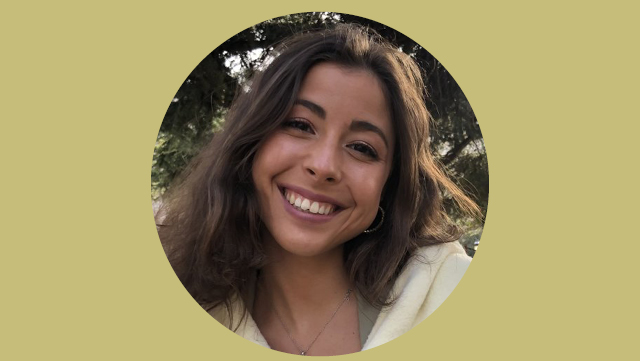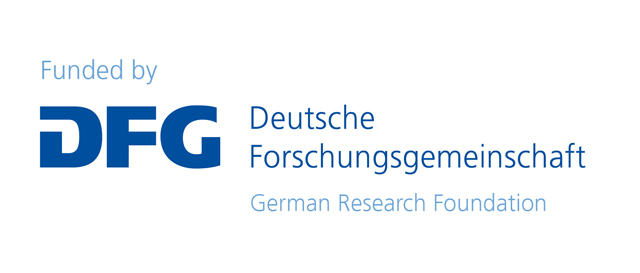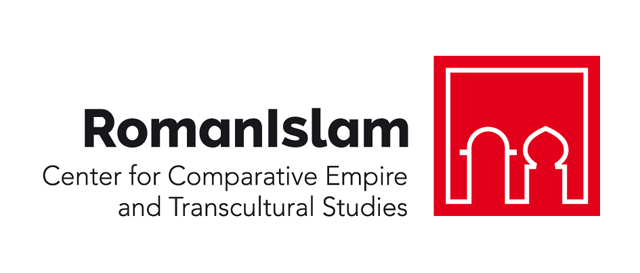Guests
Dr. Juan Francisco Álvarez Tortosa
February 2023 - March 2023
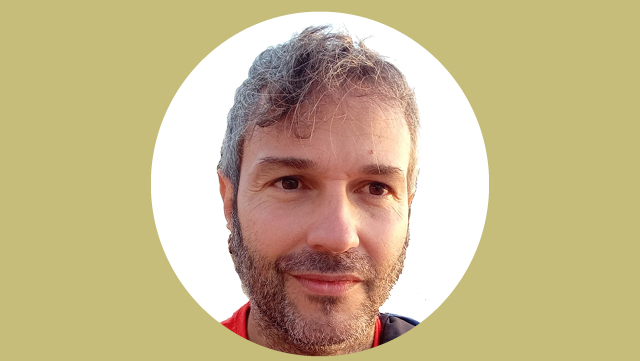
Visiting Researcher (Ancient History/ Universidad de Alicante)
Research Project
Coming soon.
Profile
Dr. Juan Francisco Álvarez Tortosa holds a PhD in History from the University of Alicante with the thesis "Production models in commercial agriculture in the northeast of the Hispania citerior province" (International Doctor mention) and directed by Professor J. Molina Vidal. His main line of research focuses on the study of the economy and the rural world in Roman times, having as a fundamental element the information provided by the centers dedicated to specialized agricultural production. He has authored various publications and communications on this field. Within his dedication to the study of Antiquity, he has also taken part as a researcher in national and international historical and archaeological research projects such as those carried out in Villa de Rufio (Perugia, Italy). Likewise, he has scientifically co-directed archaeological projects such as the Villa Romana de l'Albir (l'Alfas del Pi, Alicante), the Eastern Roman Baths of La Alcudia (Elche, Alicante), Portus Ilicitanus (Santa Pola, Alicante), the pottery workshop of La Rana (Gata de Gorgos, Alicante), the rural settlements of Les Hortes (Xaló, Alicante) and Sogai (Altea, Alicante) or the island of Portitxol (Xàbia, Alicante). He works as a Junior Collaborating Researcher in the area of Ancient History at the University of Alicante. Previously, he obtained a trainee research fellowship/contract (2011). He has enjoyed pre-doctoral research stays at research centers in Italy (Soprintendenza per i Beni Alcheologici dell'Umbria) that have allowed him to complete and internationalize his research training.
CV
[ more ]
Raquel Bujalance Silva
February 2023 - March 2023
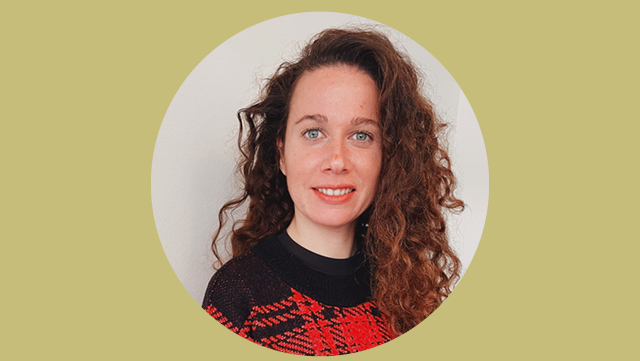
Visiting PhD Student (Ancient History/ Universidad de Alicante)
Research Project
Coming soon.
Profile
Raquel Bujalance Silva holds a degree in History from the University of Malaga and a master’s in Professional Archaeology and Heritage Management from the University of Alicante. She is currently working on her Ph.D. on the development of Islamic urbanism in the Andalusi Mediterranean under the supervision of professors Carolina Doménech and Julia Sarabia. This thesis is part of the project PID2019-108192GB-I00 Context. El contexto como herramienta: escalas de aplicación en los procesos de cambio en la Alta Edad Media financiado por el Ministerio de Ciencia e Innovación del Gobierno de España. Its main line of research focuses on the study of the urban development of the main cities in the southeast of the Iberian Peninsula, using the information as a fundamental element provided by the archaeological activities carried out in the historical centers. The final objective is to have an overview of the development of coastal cities and their evolution over time in the Mediterranean Peninsula in order to determine the common elements that influence the urban development of coastal cities and to establish their causes. As a part of her work, she has also worked as an urban archaeologist from 2017 to 2021, having directed numerous excavations, especially in the city of Málaga.
CV
[ more ]
Dr. Noelia Cases Mora
January 2024 - April 2025
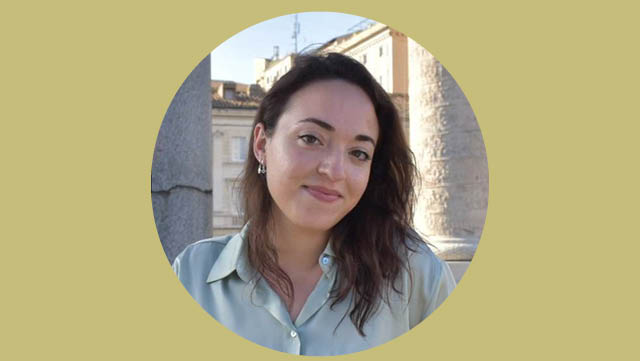
Visiting Researcher (Ancient History/ Alexander von Humboldt Stiftung)
Research Project: Honour the emperor: the epithet Augustus/a in Mauretania Tingitana and Caesariensis
This project aims to analyse the worship of divinities with the epithet Augustus/a in the North African provinces of Mauretania Tingitana and Caesariensis. Our previous research in Hispania has been largely based on the comprehensive and exhaustive analysis of the epigraphical evidence at our disposal. It has been concluded that the use of the epithet Augustus was a phenomenon essentially associated to the urban sphere, public spaces and individuals who exercised rituals related with ruler’s worship in municipia and coloniae, mainly seviri augustales. Its significance is profoundly ambiguous due to the widespread use of the abbreviation Aug., the multiplicity of gods and virtues or abstractions for which it was used.
Following the methodology already employed for the study of the subject in the provinces of Hispania, the first step of the project will be analysing the epigraphical evidence of the Mauretaniae. This territory allows for an in-depth case-study approach that provides valuable insights to the use of the epithet Augustus/a because of the rich epigraphy and the significant variety of cults and divinities. Secondly, a comparative perspective will be developed between these two cases of study: Hispania and Mauretania Tingitana and Caesariensis. This comparative is appropriate on account of the geographical proximity and the military, economic and cultural connections between the two territories.
Finally, it is our contention that by focusing on the epigraphy of these territories, we will be able to insert the topic in larger issues such as the role of the local and provincial elites in their relationship with Rome through the use of the epithet Augustus/a. Although the worship of divinities qualified as Augustan does not constitute a form of imperial worship, the reference to the ruler by individuals who held a magistracy or priesthood, as well as by private individuals, may be explained because the welfare of the state and therefore of its inhabitants depended on him.
Profile
Noelia Cases Mora graduated in History at the University of Alicante in 2017 and Master in History and Sciences of Antiquity at Universidad Complutense of Madrid and Universidad Autónoma of Madrid in 2018. She is predoctoral researcher in the University of Alicante since 2019, when she obtained a FPU-contract (Formación del Profesorado Universitario, Ministerio de Universidades). In her PhD Project, she has been working on the use of the epithet Augustus/a in the cult of divinities in Hispania under the guidance of J. M. Abascal Palazón (Ancient History, University of Alicante). During her predoctoral contract, she has been able to carry out research stays at Sapienza Università di Roma, the Kommission für Alte Geschichte and Epigraphik (München) and Archivo Epigráfico de Hispania (Madrid). Currently she has been awarded with a Humboldt-Forschungsstipendium and she will be working in the University of Hamburg, at the Center for Advanced Study "RomanIslam - Center for Comparative Empire and Transcultural Studies" where she will develop a new research project focusing on the use of the epithet Augustus in the latin inscriptions of the Mauretaniae.
CV
[ more ]
Dr. José Luis Domínguez Jiménez
January 2025 - May 2026
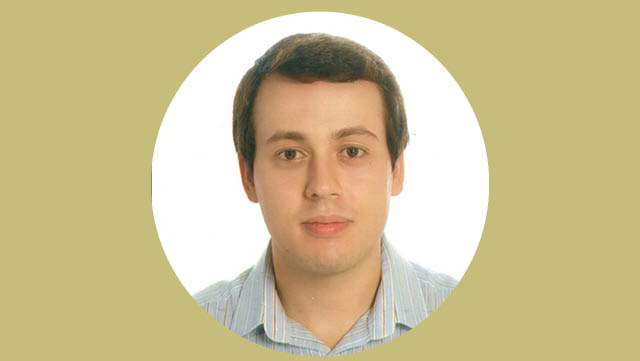
Visiting Researcher (Ancient History/ Alexander von Humboldt Stiftung)
Research Project: Roads, Control, and Settlement between Late Antiquity and the Early Middle Ages (IV-VIII AD): Corduba’s Territory as a Case Study
The project, titled Roads, Control, and Settlement between Late Antiquity and the Early Middle Ages (IV-VIII AD): Corduba’s Territory as a Case Study, seeks to analyse the logistical organization of the central area of the Conventus Cordubensis (present-day northern Córdoba province, Spain) as it transformed from the rule of Constantine through the Islamic conquest under Tariq, with a focus on roads, control systems, and settlement patterns. The project utilizes a multidisciplinary approach, combining literary sources, historical maps, epigraphic and archaeological documentation with advanced remote sensing tools: satellite imagery, Laser Imaging Detection and Ranging (LiDAR) data, and Unmanned Aerial Vehicle (UAV) images. This innovative approach is necessary to address the challenges posed by the mountainous terrain, which have historically limited traditional archaeological surveys in the area. Ultimately, I aim to develop a useful methodology for tracing the changes in territorial logistics of different regions of Hispania in Late Antiquity and the Early Middle Ages.
Profile
Dr. José Luis Domínguez Jiménez graduated in History at the University of Córdoba in 2019 and Master in Heritage Management from the Municipality at the same university in 2020, finishing with Honours. Between 2020 and 2025 he was a pre-doctoral contract FPU by the Ministry of Universities (Spain) at the University of Córdoba, where he developed his thesis under the direction of Prof. Antonio Monterroso Checa (Department of Archaeology) and Prof. Enrique Melchor Gil (Department of Ancient History), finishing his thesis with a grade of Cum Laude. The thesis, entitled ‘The logistical configuration of the central area of the Conventus Cordubensis’, focuses on understanding a large mountain territory that has been little studied in historiography due to the difficulties it presents. His thesis develops studies on the exploitation of this territory, the communication routes that crossed it, the spaces of occupation, the Roman defence of these spaces, and the diachronic evolution of all these structures throughout the centuries up to the late Antiquity. He was awarded a Humboldt Research Fellowship for Postdocs in 2024 and from 2025 will carry out his research ‘Roads, Control, and Settlement between Late Antiquity and the Early Middle Ages (IV-VIII AD): Corduba's Territory as a Case Study’ at the University of Hamburg, under the supervision of Prof. Sabine Panzram.
CV
[ more ]
Dr. Jorge Elices Ocón
September 2022 - January 2023
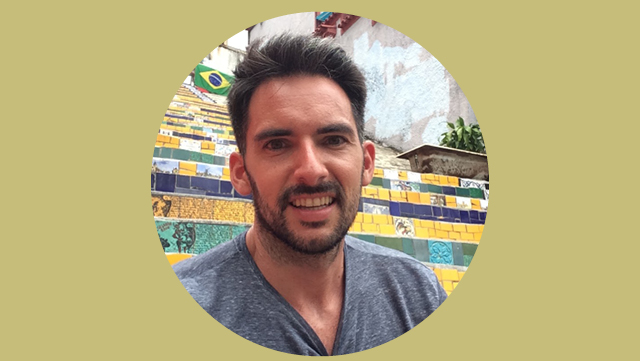
Visiting Researcher (Ancient History/ Alexander von Humboldt Stiftung)
Research Project: Recycling and reuse in Western Post-Roman societies: Christian and Islamic interpreters of antiquities
This project aims to understand recycling and reuse of spolia in post-roman societies by focusing on the role of the persons responsible for selection, reuse and display of ancient artefacts, whose implications in the processes have not been much explored. The project will analyze literary and archaeological evidence on a particular region, Iberia and North Africa, and consider a wide chronological frame in order to trace a comparison between Pagan, Christian and Islamic attitudes and responses towards reuse of spolia. The project will attend to examples of dismantle and reuse of ancient material, focusing on the “skilled workmen”, “intermediaries”, “translators”, “cultural brokers” or “local interpreters” responsible for a process of value/meaning manufacture. For such aims, the project will consider cases of reuse in which these agents played a significant role. In all these case studies, these “intermediaries”, “cultural brokers” or “locals interpreters” stand out for playing a significant role in the processes of recycling and reuse. They select or reject certain materials, facilitate their circulation and reuse, establish their value as architectural or decorative pieces, reinterpret ancient ruins in political or religious terms, provide or create knowledge about it or deal with the information that the objects carried or conveyed by themselves, declare authorized (and sometimes authoritative) claims to physical ownership and meaning of monuments and ancient artefacts, and even contribute decisively to the emergence of new and distinctive Christian and Islamic visual cultures. They were also in contact with antiquities, determined the processes of recycling and reuse, perhaps even indicated where to locate the materials and therefore, how visible and legible they eventually were. They also mediated between different cultural, religious and political realms as well as between past, present and future. Therefore, it is our contention that by focusing on the agency of these particular individuals we will open the topic of recycle and reuse to new and original perspectives that will help us to understand how and why these processes took place and explore the intersections between practices, persons and artefacts capable of transforming space and time.
Profile
Jorge Elices Ocón is MA and Doctor in Ancient Studies and a postdoctoral researcher at Universidade Federal de Sao Paulo (Brazil), where he has recently concluded a project on the afterlife of classical statuary in Islamic societies, supported by the FAPESP (Fundação de Amparo à Pesquisa do Estado de São Paulo). Currently he has been awarded with a Humboldt-Forschungsstipendium für erfahrene Forschende and he will be working in the University of Hamburg, at the Center for Advanced Study “RomanIslam – Center for Comparative Empire and Transcultural Studies” where he will develop a new research project focusing on the interpreters of antiquities.
CV
[ more ]
Raquel Ezquerro Jiménez
Natalia Figueiras Pimentel
April 2023 - September 2023
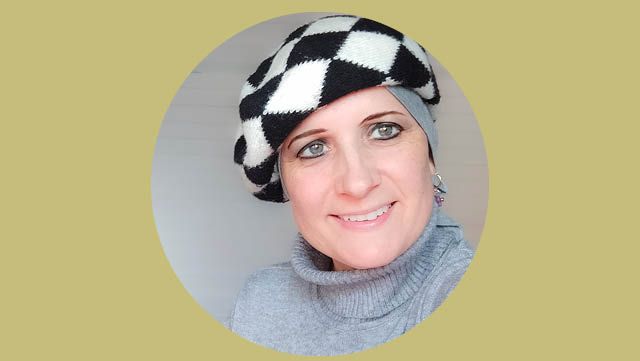
Visiting PhD Student (Ancient History / Universidad Complutense de Madrid)
Research Project
For five years she has been carrying out research as a doctoral thesis at the Complutense University of Madrid on rupestrian architecture and hermitism the northwest of the Iberian Peninsula, from Late Antiquity to the Middle Ages, whose object is the study of the oldest monastic complex of Galicia, St Pedro de Rocas. This research is part of the Petra Sacra project, developed by J. López Quiroga and N. Figueiras Pimentel, first in collaboration with the Xunta de Galicia and since 2021 at the Moreiras St Pedro de Rocas Foundation (state foundation dedicated to the Protection, Study, Dissemination and Valorisation of Historical Rupestrian Heritage), as well as from the Autonomous University of Madrid and the Complutense University of Madrid. The project is developed from a transdisciplinary perspective using applied sciences. Although his employment, as well as the analytical work of materials in the laboratory, it is today already frequent in the field of Heritage Conservation and Restoration and/or in Archaeology, in the case of History and Art History it is, by far, much less common. Therefore, the research methodology that we apply has the purpose of reformulating the historical-artistic discourse from the analytical data obtained through field work and in the laboratory, being the rock material the primary source of analysis and observation, to then establish a dialogue with the written sources. The study of the rock, the construction activity, and the functions of the architecture, in relation to the landscape, the natural environment and the anthropized topography, are the aspects to be analysed. The meaning of the research aims to redefine hermitism, its implementation, the different phases of landscape transformation, the relationships between the Christian tradition in the Iberian Peninsula and the East, the presence of the tradition of the Fathers and Mothers of the desert, in Gallaecia, the determining figure and work of Martin of Dumio in this implantation of oriental hermitage in the northwest of Hispania, the coexistence between hermitic and cenobitic life in these cave complexes such as St. Pedro of Rocas and its eschatological, funerary, thaumaturgical and liturgical character. On the other hand, it is necessary to highlight the realization of the scientific, technical, and historical-artistic study of the mural painting of the World Map as unicum in the history of cartography, as well as in the World Maps of the Beatus and which has been recently recovered.
Profile
Natalia Figueiras Pimentel is Graduate in Art History, specialty History of Medieval Art (Santiago de Compostela University, 1995-1999). Teaching Certificate (University of Valencia, 1999-2000). Specialist in "Conservation and Restoration of Historical-Artistic Heritage" (Polytechnic University of Valencia, UPV, 2001-2003). She completed a doctoral program in Fine Arts, “Conservation and Restoration of Artistic Historical Heritage" (2001-2003). She has also a transdisciplinary training in relation to the documentation, study, and enhancement of cultural heritage: "Characterization of architectural materials and Stone Conservation-Restoration" (University of Zaragoza, 2004). Superior Technique in "Plastic Arts and Design in Artistic Photography" (EASD ‘Antonio Faílde’, 2008-2011), postgraduate training in Archaeometry and Applied Techniques (Polytechnic University of Valencia, 2001-2007; University of Murcia, 2020-2021 and University of Burgos, 2021-2023). She is currently doing her doctoral thesis in History of Medieval Art at the Complutense University of Madrid, International PhD Mention, with a thesis entitled: "Hermitism in the northwest of the Iberian Peninsula during the Middle Ages from the St Pedro de Rocas rupestrian complex (Ribeira Sacra, Galicia, Spain) as a paradigm: a transdisciplinary scientific study applied to the History of Art".
CV
[ more ]
Rhiannon Garth Jones
March 2023
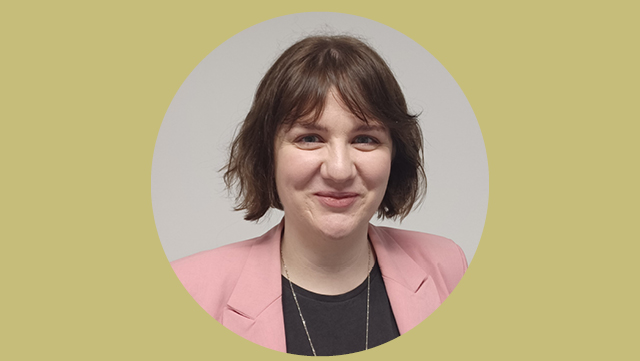
Visiting PhD Student (Islamic Studies/ Aarhus Universitei)
Research Project: Abbasid References to al-Rum in their Visual Language of Power from 754-836 CE: A Reassessment of the Material Culture and Written Sources
The project takes an interdisciplinary approach to explore the ways in which the Abbasid caliphs in the period of 754–861 referenced their imperial rival al-Rum in their visual language of power, combining textual sources with archaeological evidence. It particularly focuses on the imperial capitals of Baghdad and Samarra to position the Abbasid caliphs within a long late antiquity, where elites had interacted for over a millennium. It aims to contribute to a more nuanced understanding of the period, demonstrating the ownership of these traditions that the Abbasids showed and the use they made of those influences to express their own identity, and rebalance our current understanding of where and with whom classical heritage lies. Thus, hoping to add to the growing body of scholarship rethinking rigid ideas of cultural and civilisational boundaries, as well as further challenging ideas of derivative cultures and urban declines in Late Antiquity and early Islam.
Profile
Rhiannon Garth Jones is a PhD Fellow at the Centre for Urban Network Evolutions, supervised by Professor Rubina Raja. Her background is in Roman history and Mediterranean religions and she is deeply interested in the intersection of empire, history, and religion, as well as the reception and manifestations of those in the modern day. Early Abbasid history; the long late antiquity; religions of the Mediterranean; artistic, cultural, ideological, and religious interactions and transformations in the ancient world; imperialisms across time and space; languages of power; urban transformation in the Mediterranean and West Asia.
CV
[ more ]
Prof. Dr. Ignasi Grau Mira
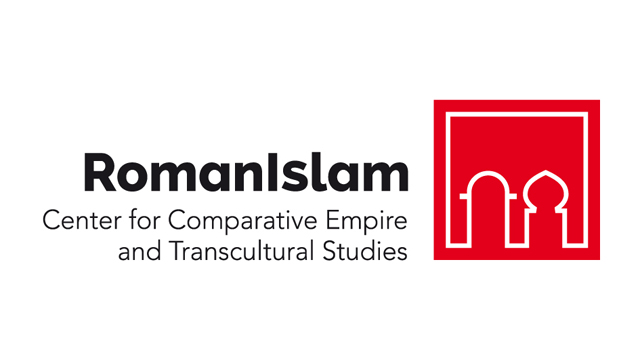
Visiting Full Professor (Ancient History) --> August 2022
[ more ]
Arnau Lario Devesa
October 2023 - December 2023
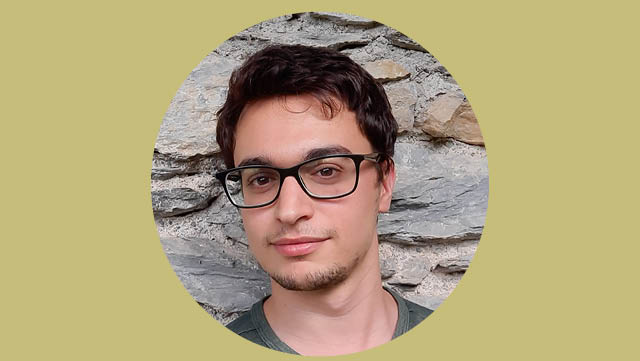
Visiting PhD Student (Ancient History / Universidad de Barcelona)
Research Project: Urban economic activity in Roman Cities from Hispania Tarraconensis (I BC – V AD)
The aim of the stay is to develop several aspects of a doctoral research devoted to the analysis of the economic dynamics of the cities of the Roman province of Hispania Citerior Tarraconensis between the 1st and 5th centuries AD. Specifically, it aims to evaluate three issues: first, the forms of organisation and entity of a number of activities (services, small trade, craft production, periurban agriculture); second, the possible impact of these activities on urbanism; finally, the relationship between city and territory. The research project is based on the archaeological record, epigraphic documentation and written sources of the time. At the same time, it involves a profound review of modern academic literature, where there is a very important debate about the nature of the Roman city and the imperial economy itself. As far as I am concerned, the stay will be used to carry out a bibliographic research on specialised sources not present in the library of the University of Barcelona; in particular, monographs and journals focusing on archaeology of Hispania. Secondly, the aim is to collect, quantify and evaluate a wide range of epigraphic documents (in stone, metal or clay) related to economic processes; especially the so-called epigraphy of the instrumentum (objects of everyday use), the only one likely to be studied on quantitative and statistical criteria with respect to the ancient world. The joint contact between Hamburg, the Centre 'Corpus Inscriptionum Latinarum' in Berlin and the CEIPAC research team where I work can be used to build an epigraphic database of my own (related to that created by CEIPAC and which I have also been working on for years) and to build work hypotheses to develop the early stages of my doctoral research.
Profile
Arnau Lario Devesa earned two bachelor's degrees from the University of Barcelona: one in Archaeology (2015-2019), and the other in History (2017-2021). Following this, he attained a Master’s Degree in Classical Archaeology from the University of Rome-La Sapienza (2020-2022). He subsequently secured a position as a PhD student at the University of Barcelona (2022-present), where he is currently focusing on a thesis examining the economic dynamics of Roman cities in the province of Hispania Tarraconensis. His primary research interests span ancient religious thought, Roman urban economy, and the history of archaeological research. Since 2018, Lario Devesa has been an engaged contributor to several funded research initiatives, including projects like “Grecs i comunitats locals a l'entorn d'Empúries. Dinàmiques del paisatge, estratègies de poblament i contactes culturals en l'antic estuari del Ter i el Fluvià (segles X-II a. C.)” (Ref. CLT009-18-00087_UPF). Other significant projects are “Paisatges de contacte i comunitats rurals a l'entorn d'Empúries (ss. X-II a.C)” (ARQ001SOL-208-2022), “Dinàmiques socioeconòmiques del món rural romà: formes d.hàbitat i cultura material al litoral central català” (ARQ001SOL-163-2022), and “Ex Hispania in Imperium. Interdependencia provincial y dinámicas socioeconómicas de la producción y comercio de alimentos en el Alto Imperio” (PID2021-123951NB-I00). He is also a member of the Centro para el Estudio de la Interdependencia Provincial en la Antigüedad Clásica (CEIPAC, University of Barcelona) since 2017.
CV
[ more ]
Dr. José Carlos López Gómez
July 2025 - 2026
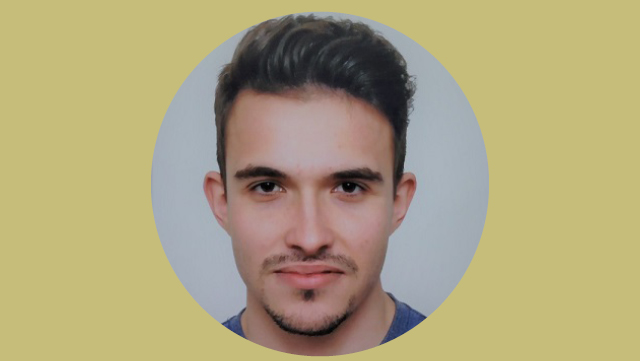
Visiting Researcher (Ancient History/ Alexander von Humboldt Stiftung)
Research Project: Connecting Rural Religious Places in Late Antique Iberia (5th–7th Centuries) (CONIBERLA)
The aim of this project is to conduct a series of network analyses in relation to rural religious spaces in the Iberian Peninsula in Late Antiquity (Fifth to Seventh centuries). The project will provide an exhaustive compilation of the available information on religious cult places in rural areas, placing the focus of analysis on space rather than on specific religious groups. This perspective will make it possible to highlight the singularity of rural spaces in the configuration of religious practices and will enable a focus on social subjects and their motivations rather than on institutions and their longue durée. The best way to visualise the literary and archaeological mosaic of religious options in late antique rural Iberia is through the creation of maps that capture the archaeological testimonies and literary references related to the web of rituals and beliefs that made up the symbolic universe of the countryside in the Iberian Peninsula during Late Antiquity. From a methodological point of view, different network approaches will be employed to elucidate the role played by cities, episcopal sees or rural churches and communities in promoting the cohesion and integrity (or the diversity) of religious practices and beliefs in late antique Iberia. Additionally, this project will seek to determine how the spread of religious ideas, practices or materials occurred as a result of the actions of influential agents from a doctrinal, economic and social point of view. The analysis of connectivities at local and inter-regional level will be conducted through the examination of the specificities of the materiality associated with religious places, of the proximity of rural churches to episcopal sees and surrounding rural settlements, and of the position of these churches in relation to the road network and the trade routes used to transport not only materials, but also people, ideas, religious practices and beliefs.
Profile
Dr. José Carlos López Gómez is a historian specialized in Late Antiquity and currently Assistant Professor at the University of Málaga. He earned his Ph.D. in 2020 at the Universidad Carlos III de Madrid with a dissertation focused on the religious transformations of Late Roman Hispania, particularly the disappearance of polytheism and the complex processes of Christianization in their social, ideological, and material dimensions. His research has progressively expanded to examine religious experiences and spatial dynamics in the rural landscapes of the late Roman and post-Roman West, with particular attention to the interplay between urban centers and their hinterlands. These investigations seek to reassess the transformation of religious life beyond traditional urban frameworks. He has taken part in seven competitive research projects, including four funded by the Spanish National Research Plan, two by the Andalusian regional government, and one funded by the University of Málaga (UMA), Religious Networks in the Iberian Peninsula in Antiquity, for which he served as Principal Investigator. He is also a member of two consolidated research groups: Historiografía e Historia de las Religiones (UC3M) and Dinamismo e Innovación Religiosa en el Mundo Antiguo (UMA). Dr. López Gómez’s international profile includes predoctoral stays in London and Rome, and postdoctoral fellowships in Brno and La Sapienza (Rome). From 2021 to 2022, he was a postdoctoral fellow at the RomanIslam Center (University of Hamburg), an institution he rejoined in July 2025 after being awarded the prestigious Alexander von Humboldt Fellowship, which will support a year-long research stay.
CV
[ more ]
Dr. Borja Martín Cachón
April - June 2024, January - April 2025
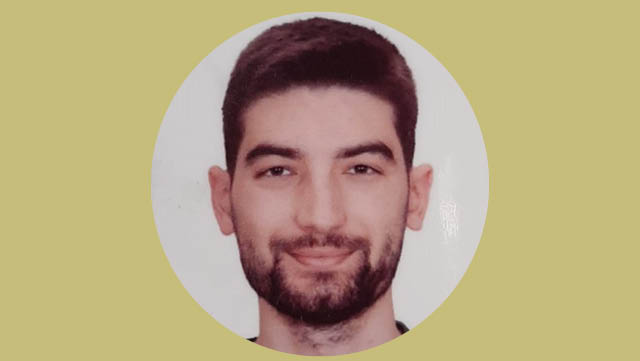
Visiting Researcher (Ancient History/ Universitat de Barcelona)
Research Project: Transformations of the indigenous communities in Northeastern Hispania Citerior between the late 2nd century and early 1st century BCE
The aim of this research stay is to further contribute to the study of the transformation experienced by the indigenous communities of northeast of Hispania Citerior between the late 2nd century and early 1st century BCE. Regarding this subject, special attention is devoted to the process of legal integration, assessing whether some communities newly founded or that reshaped their urban centres according Roman patterns were also promoted to the status of Latin colonies.
This research employs a multidisciplinary approach that incorporates literary, archaeological, numismatic and epigraphic evidence. So far, this approach has enabled case studies of the communities of Tarraco, Ilerda, Iesso and Aeso. However, it is noted that the process of urban (re)foundation affected the major communities of this territory, and it is plausible that other cities such as Emporiae, Gerunda, Iluro, or Baetulo may have undergone similar promotions.
The use of this legal promotion is already attested in the 2nd and 1st centuries BCE in Hispania, as attested by the cases of Carteia and Saguntum, and recent historiography has considered that a growing number of communities may have been promoted as well. Such promotion may help to explain some evidence, such as Latin onomastics of indigenous individuals, Pliny’s references to oppida of ancient Latium, literary mentions of colonies and archaeological findings as the Capitoline temple and auguraculum in Tarraco. These pieces of evidence contribute to a comprehensive understanding of the integration of many communities in Republican Hispania during this period, as well as their active participation in conflicts that ensued during the transition to the Empire inaugurated by Augustus.
Profile
Borja Martín Chacón graduated in History at the Universitat de Barcelona in 2017 and Master in History and Sciences of Antiquity at Universidad Complutense of Madrid and Universidad Autónoma of Madrid in 2018. In December 2023, he defended his PhD thesis in Universitat of Barcelona under the supervison of Ignasi Garcés Estallo (UB) and Estela García Fernández (UCM). His project, entitled “The legal and territorial integration of northeastern Hispania Citerior in the Roman Republic (2nd-1st centuries BCE)”, evaluates the possibility that some indigenous communities were promoted to the legal status of Latin colonies before the time of Caesar and Augustus. He obtained a 4-year PREDOCS-UB contract in Universitat de Barcelona to fund his predoctoral research, which became a postdoctoral contract after obtaining his PhD. He participates in several research projects, including “El Mediterráneo noroccidental en la Roma Republicana (c. 150-70 a.C.) conectividad terrestre y marítima”, lead by Toni Ñaco del Hoyo (Universitat de Girona) and Jordi Principal Ponce, and “La ciutat d’Aeso (Isona) i el seu territori a les èpoques ibèrica i romana”, lead by Ignasi Garcés Estallo (UB). During this period, he conducted research stays at Sapienza Università di Roma and the Kommission für Alte Geschichte und Epigraphik (München).
CV
[ more ]
Juan Manuel Martin Casado
August - October 2022
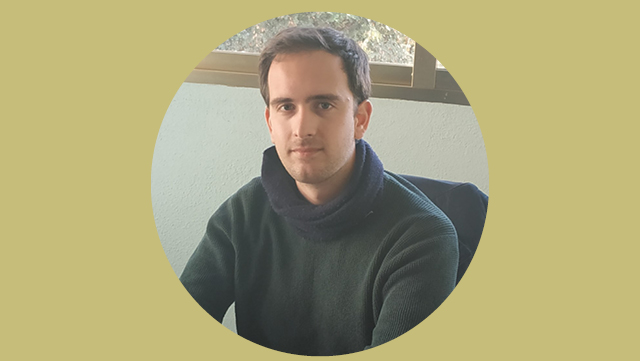
Visiting PhD Student (Ancient History/ Universidad de Malaga)
Research Project
My thesis project deals with the impact of natural disasters, especially those caused by earthquakes, tsunamis and climatic shocks, on societies in the Iberian Peninsula from the Late Bronze Age to Late Antiquity. My research has identified a concentration of earthquakes and tsunamis in the Roman province of Baetica between the 3rd and 5th centuries AD. The geoarchaeological information provides evidence of seismic damage in urban centres, such as Corduba or Baelo Claudia, and the impact of possible tsunamis in coastal sites such as Onuba, Baelo itself and even Hispalis. The natural archives also point to a possible worsening of climatic conditions from the 5th century AD onwards. For this reason, and to complete one of the main objectives of my thesis project, I intend to assess the impact of these phenomena on the complex process of transformation of the socio-economic structures of Roman Hispania, especially in Baetica. My research project at the Centro de Estudios Históricos Avanzados RomanIslam, under the supervision of Professor Sabine Panzram, aims to consolidate a comprehensive knowledge of the historical and archaeological information on the area during the 3rd and 5th centuries AD. The aim is to deepen the historiographical debate on the causes of the end of Roman power in Hispania and to develop an exhaustive review of the historical documentation and archaeological and epigraphic information on Baetica between the 3rd and 5th centuries, in order to identify evidence or indications of destruction, hiatuses or allusions to aid for the recovery of local communities, in which the impact of extreme events, such as earthquakes and tsunamis, can be seen.
Profile
Juan Manuel Martín Casado is gaduated in History from the University of Malaga in 2017 and Master in Historical and Literary Heritage of Antiquity from the same university in 2019. Both with extraordinary award. He is currently a PhD student at the University of Malaga (Spain), where He is writing a doctoral thesis about the impact of natural catastrophes in the Iberian Peninsula during Antiquity. This work is carried out thanks to a pre-doctoral FPU contract awarded by the Spanish Ministry of Universities (MIU) linked to the Research Project “Terremotos y tsunamis en la península ibérica en época antigua: respuestas sociales en la larga duración”. His work focuses on the literary traditions about ancient catastrophes and the evidence of extreme geological and climatic events in the Iberian Peninsula between the first millennium BC and the first millennium AD. He is especially keen on the effects of climatic changes and natural disasters, such as earthquakes, seaquakes, and plagues, as factors of crisis in the Roman Empire since the third century AD.
CV
[ more ]
Diana Morales Manzanares
April - June 2022
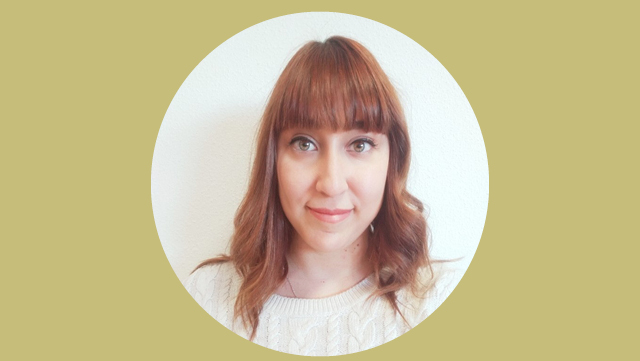
Visiting PhD Student (Ancient History/ Universidad Rey Juan Carlos)
Research Project: The early Romanisation of the Tagus region in diachronic perspective
My thesis focuses on the Roman implantation in the indigenous communities in the peninsular hinterland, so the project to be developed at the RomanIslam Center for Empire and Transcultural Studies aims to expand the information of the research that is being carried out at the moment.The goal of the project is to establish a better characterisation of the coexistence of the Roman system with the indigenous systems in the interior of the peninsula through a diachronic and multidisciplinary perspective using landscape archaeology as a starting point. Thus, the changes, continuity and survival of the different types of settlement in the middle Tagus basin will be investigated. This research will be based on archaeological and historical sources in the present-day regions of Guadalajara, Cuenca, Madrid and Toledo. During the stay in RomanIslam, the aim is to establish an exhaustive search for data about this process, which will allow me to reinforce and complement the discourse currently supported by the archaeological record. In addition, the Geographical Information Systems will be used to incorporate all the data collected, such as archaeological excavation reports, historical sources or epigraphic sources. Using this methodology it is intended to obtain results on a general scale in the study area.
Profile
Diana Morales Manzanares is a Graduate in History (Complutense University of Madrid 2015); Diploma in Tourism (Rey Juan Carlos University, 2011); Master in Arqueología en el Mediterráneo en la Antigüedad Clásica (Complutense University of Madrid, 2016). She is currently a Predoctoral Contracted Researcher in the Humanidades: Lenguaje y Cultura Doctorate Program (Rey Juan Carlos University), where she focuses her main lines of research on the peninsular pre-Roman communities, specifically, those located in the Central Plateau and on Digital Technologies applied to Protohistory and Heritage Education. She is a researcher of the "Proyecto de recuperación del espacio arqueológico de la Ermita y Necrópolis de San Nicolás (La Sequera de Haza, Burgos)" and "Proyecto de recuperación arqueológica del Castillo de Guzmán (Burgos)", among other competitive projects. Honorary collaborator of the Rey Juan Carlos University since February 2019..
CV
[ more ]
José María Narganes Moreno

Visiting PhD Student (Islamic Studies) --> April 2021 - June 2021
[ more ]
Prof. Dr. Donatella Nuzzo
March 2024
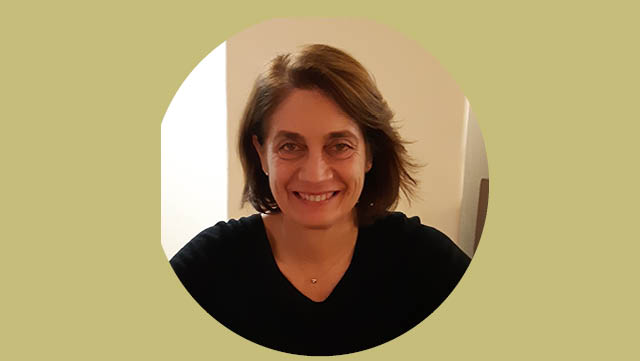
Visiting Researcher (Christian Archaeology / Università degli Studi di Bari "Aldo Moro")
Research Project: Ostia in Late Antiquity and the Early Christian Inscriptions
The project aims to study the Early Christian epigraphic production of Ostia, that has never been the topic of a monographic study, with the perspective of an edition for the corpus of the Inscriptiones christianae Italiae (ICI). Of the numerous funerary inscriptions, I examine especially the features of the formulary, with particular reference to those expressions useful to define the process of formation of a specific language of Christians in the third century. I also reflect on the not many epigraphs referable to non-sepulchral functions. Although small in number, they attest to the evergetic interest on the part of characters belonging to one of the main Roman families, that of the Anici. Are almost infrequent the inscriptions attesting the episcopal initiative, unlike what is found in nearby city of Portus.
Profile
Donatella Nuzzo is Associate Professor of Christian and Medieval Archaeology since 2007 at the Università degli Studi di Bari "Aldo Moro" and qualified as Full Professor (10/A1 – ARCHAEOLOGY) since 2014 (qualified again as Full Professor in 2018). In the last few years she focused on Apulia: so, the cities of provincia Apulia et Calabria became in last decade another object of her attention, especially about their process of transformation in Late Antiquity and Middle Ages. After the study of Canusium, by analysis of epigraphic and literary sources - also on the base of the results of the archaeological campaigns conducted in the ‘episcopal complex’ of St. Peter and of the most important late antique cemetery of the city, at “Ponte della Lama”, she focused on the city of Bari, heir of the role of Canusium as capital of the region from the Early Middle Age: Bari is the official capital of the Byzantine governor, whose seat in the city was the praitorion, where now is the St. Nicholas’ basilica established at the end of 11th century. The study about the formation of the Cittadella Nicolaiana between the Norman and the Angevis ages is in progress. Since 2017 she lead a systematic series of archaeological surveys and excavations in this area: after my edition of a books about this search; other studies about structures and finds at the moment are published and in progress. In this frame, she is involved with a responsibility role in the international project of the Corpus Architecturae Religiosae Europaeae (CARE) about churches and Christian and Early Middle Ages funerary settlements in the central area of Apulia (territories of Bari and Taranto). Her field of research is also about the Christian cemeteries of Rome and Southern Italy between 3th and 7th century, with topographical studies and archaeological excavations in Christian cemeteries - particularly in Christian catacombs (with analysis and studies of their development, tombs typology, burial practices, funerary inscriptions). Indeed, another relevant field in her research activities is Epigraphy. She published studies and editions of inscriptions from Rome, Ostia, Portus Romae, as well as from provincia Apulia et Calabria.
CV
[ more ]
Alejandro Peláez Martín

Visiting PhD Student (Islamic Studies) --> April 2021 - June 2021
[ more ]
Prof. Dr. Alberto Polo Romero
April - May 2023
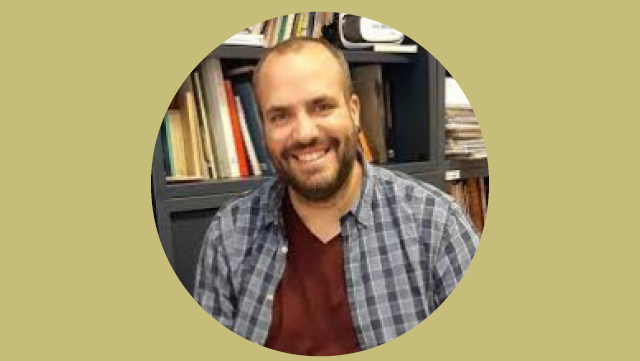
Visiting Associate Professor (Ancient History/ Universidad Rey Juan Carlos)
Research Project: Archaeology of rural landscapes in the Ribera del Duero región
The project, with an interdisciplinary, diachronic and multiscale approach, aims to characterise the transformations that occurred in rural settlement in the Ribera del Duero between the end of prehistory and the full-medieval world. The project aims to characterise the rural settlement patterns in the area of the Duero, Riaza and Duratón river interfluve from the perspective of Landscape Archaeology. For this purpose, data from archaeological excavations at the San Nicolás site (La Sequera de Haza, Burgos, Spain) and the Guzmán Castle (Guzmán, Burgos, Spain), archaeological surveys, archaeological maps and different previous databases are incorporated. Thus, from the perspective of the "longue durée" a holistic understanding of the anthropic transformations of the landscape is sought. From the spatial analysis with GIS, the dataset will be processed in order to homogenise the data and carry out an overall analysis from a diachronic perspective.
Profile
L. Alberto Polo Romero hold a BA in History, Master's Degree in Teacher Training for Secondary School and Baccalaureate, Vocational Training and Language Teaching, PhD in Archaeology. His area of interest focuses on Archaeology, Heritage and Digital Humanities applied to research and education. He teaches in the Department of Arts and Humanities (Archaeology Area). She also teaches on the Master's Degree in Contemporary Artistic Practices. He coordinates the Teaching Innovation Group in History, Archaeology and Disability-HARQUA and the Laboratory of Archaeology and Digital Humanities belonging to the Network of University Laboratories of the Rey Juan Carlos University. In terms of research activity, he has been the PI of four competitive projects and twelve research contracts with different city councils and companies. All of them related to Archaeology and Heritage. On the other hand, he has authored and co-authored more than 30 articles and book chapters related to his lines of research.
CV
[ more ]
Prof. Dr. Umberto Roberto

Visiting Full Professor (Ancient History) --> July 2022
[ more ]
Dr. Rocío Suárez Vallejo
July 2025 - January 2026
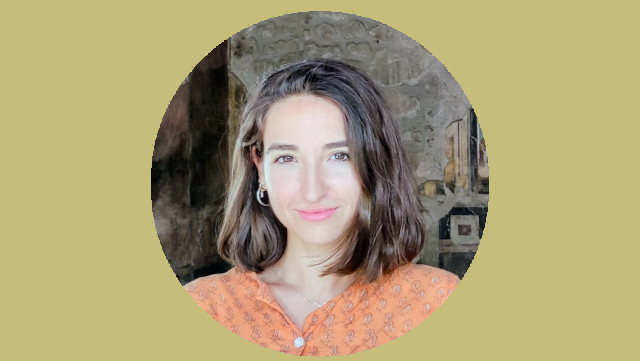
Visiting Researcher (Ancient History/ Universidad de Málaga)
Research Project: Petras, Arbores et Fontes in Late Antique Gaul and Hispania
The project explores the ecclesiastical condemnation of vows and ritual offerings made near trees, stones, and springs in post-Roman Gaul and Hispania (6th–8th centuries), with the aim of understanding how natural spaces functioned as alternative ritual landscapes in the Late Antique countryside. Rather than interpreting these practices as mere survivals of pre-Christian religion, the research investigates them as active forms of devotional expression, often taking place outside official liturgical control. Through the analysis of sermons, penitentials and pastoral letters, the project examines the transmission and transformation of literary discourses inherited from Roman religious thought and their role in framing such practices as dangerous relics of a pagan past. It pays particular attention to the development of these condemnations from Merovingian Gaul to Visigothic Hispania, and to the tensions they reveal between local religiosity and ecclesiastical authority. The methodological approach is informed by the concept of Lived Ancient Religion (LAR), which highlights how individuals and communities shaped their religious experience through interaction with the material and natural environment.
Profile
Rocío Suárez Vallejo holds a PhD in Ancient History and History of Religions from the University of Málaga and the Università degli Studi di Padova (April 2025). She earned her degree in History from the University of Málaga in 2019 and completed a Master's in History and Sciences of Antiquity at the Universidad Complutense and Universidad Autónoma de Madrid in 2020. From 2020 to 2024, she held a FPU fellowship (Formación del Profesorado Universitario, Spanish Ministry of Universities) to carry out her doctoral research at the University of Málaga, where she participated in the national project “Religión rural en la Hispania tardoantigua” (PI: C. Martínez Maza). Her work focuses on religious landscapes, iconoclasm and the transformation of sacred space from Late Antiquity to the early Middle Ages. During her PhD, she conducted research stays at the University of Padua, the University of Franche-Comté (Besançon), and the German Archaeological Institute in Rome. She has continued her postdoctoral research at the University of Málaga, focusing on sacred space and the reshaping of rural religious practices in post-Roman Iberia.
CV
[ more ]
Inmaculada Villafranca Jiménez
October - December 2024
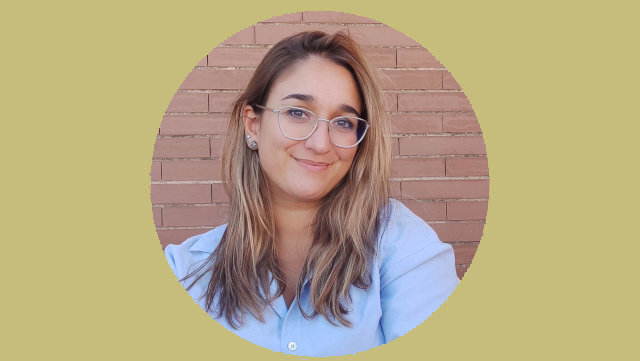
Visiting Doctoral Student (Ancient History)
Research Project:
My research project aims to explore the nature and evolution of ataurique decorations during the Caliphate of Córdoba by analyzing archaeological findings, examining connections with other sites, and considering the influence of earlier and later societies. Known for their beauty and cultural significance, these decorations provide a unique glimpse into the interactions between the Eastern and Western worlds during and after the Umayyad rule in Córdoba. The study will focus on how these designs reflect cultural and artistic exchanges between the Iberian Peninsula and the broader Islamic world. Additionally, it will explore how ataurique patterns link the artistic traditions of Late Antiquity and Visigothic Iberia with those of Al-Andalus. Through this analysis, the project aims to deepen our understanding of the social and cultural dynamics of the Caliphate of Córdoba within its historical context, its inheritance from the past and its relevance for the future.
Profile
Inmaculada Villafranca Jiménez (Córdoba, 1993) is a PhD student at the University of Córdoba (2021–present), where she is researching ataurique decorations and al-Andalus architecture. She holds a Bachelor's Degree in History (2015) from the University of Córdoba (Spain), a Master’s Degree in Archaeology and Cultures of the Ancient World (2018) from the University of Bologna (Italy), and a Master’s Degree in Heritage (2019) from the University of Córdoba. Additionally, she completed a course in Forensic Expertise in Archaeology (2024) and a Master’s Degree in European Union Studies (2022), which complement her expertise in archaeology and heritage management. Alongside her academic work, she is an archaeologist based in Córdoba, where she has participated in several archaeological interventions. She also works as a tour guide, specializing in the Mosque-Cathedral and the archaeological site of Madinat al-Zahra.
CV
[ more ]

